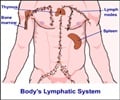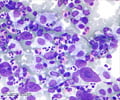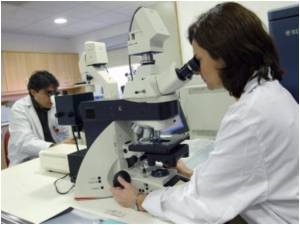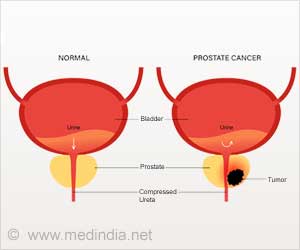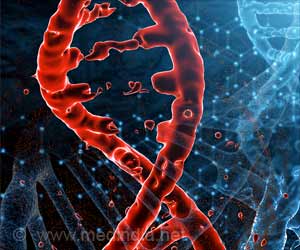A lymphoma vaccine designed for each patient increases disease-free survival, reveals study led by researchers.

"These results have the potential to usher in a new age of cancer vaccines," he said. "I believe a whole flood of agents will soon begin to show positive results."
Tumors'' proteins used to tune immune system attack
Kwak, who has devoted 20 years to investigating the science of cancer vaccines, specifically a personalized therapy for follicular lymphoma, was named in 2010 as one of Time magazine''s 100 most influential people.
"This vaccine is a true example of a homegrown agent we''ve taken from bench to bedside," he said. "We discovered it in the laboratory, and we''ve taken it all the way through the clinical trial process. Now its approval as a commercial drug may be imminent."
To make the vaccine, unique proteins from each patient''s tumor are isolated and combined with a delivery agent and a growth factor. This mixture then is injected back into the patient. Earlier studies showed this approach induces anti-tumor immune responses with few side effects in most lymphoma patients.
Advertisement
According to the National Cancer Institute, non-Hodgkin''s lymphoma is one of the most common cancers in the United States. More than 74,000 people were diagnosed with the disease in 2010. Follicular lymphoma accounts for 22 percent of non-Hodgkin lymphomas worldwide.
Advertisement
Some patients appear to have even stronger response
The 234 patients in this trial first were treated with a chemotherapy combination known as PACE. Of these patients, 117 went into complete remission or had a complete response for at least six months, and they received either the vaccine or a placebo. During a median follow-up period of 55.6 months, median time to relapse for the 76 vaccinated patients was 44.2 months, compared with 30.6 months for the 41 who received placebo.
However, an unplanned subgroup analysis showed that patients with a certain biological marker had an even more profound response, extending disease-free survival time from 28.7 months to 52.9 months. While those results need to be confirmed in randomized studies, they suggest the potential for further targeting the vaccine.
"This huge difference points the way toward specific patients who may be likely to respond even more dramatically to the vaccine," Kwak said. "It also helps focus priorities moving forward. For instance, the Food and Drug Administration (FDA) might expedite commercial development of the drug because they know it works so well for certain patients."
What''s next?
These findings may be applicable to other types of cancers, as well as a broader range of lymphoma patients. In addition, Kwak said a next-generation lymphoma vaccine his team has been working on should enter clinical testing sometime within the next year.
The National Cancer Institute advanced the vaccine by sponsoring its first randomized phase III clinical trial with the intention of handing the trial off to a corporate partner. BioVest International prevailed in a competitive process to collaborate with the NCI and took over the trial in 2004. BioVest is developing the vaccine under the brand name BioVaxID. The company is moving forward to secure FDA approval of the vaccine. This trial was supported by National Cancer Institute and Biovest International, Inc.
Source-Newswise

